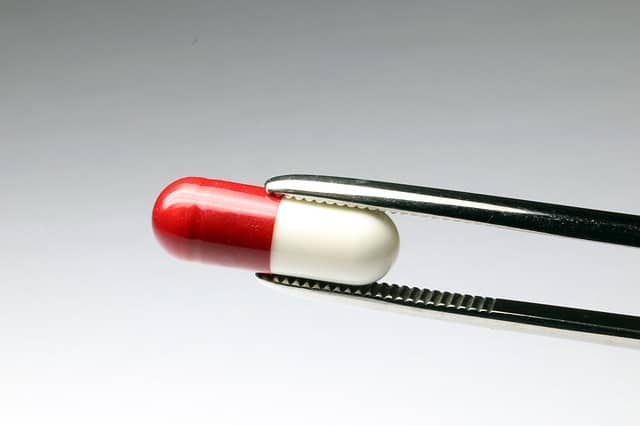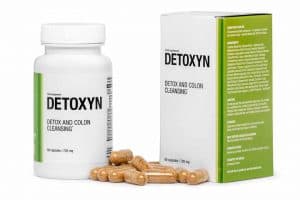Choline (vitamin B4) is an extremely important for proper functioning of our system substance, which unfortunately we often have in our body too little. Choline deficiency is particularly dangerous for pregnant women, because it is a component that guards the proper development of the nervous system and brain in the fetus. Vitamin B4 also performs a number of important functions in an adult, including regulating the work of muscles and heart, and affects the maintenance of good mental performance and impeccable memory. Let’s find out more about this important substance, check what benefits can its supplementation bring us.
Table of contents
What is choline?
Choline ( vitaminB4) is an organic chemical compound belonging to the group of vitamin-like substances. It occurs mostly in the form of chloride, is a colorless or white crystalline substance, and dissolves well in water and ethanol.
Vitamin B4 is a component of phospholipids, including lecithin. It is a building block of cell membranes. One of its main roles is to create and maintain the proper structure of cells in our body.
Choline also takes part in many processes occurring in the body. It participates in the metabolism of fats and proteins, controls the nervous system, improves the functioning of the liver. But these are only some of numerous functions of choline, in fact it has a positive effect on almost all of our body, that is why maintaining its concentration at the right level is so important.
Although our body produces small amounts of choline by itself (it is synthesized in the liver with the help of such substances as folic acid, vitamin B12, amino acids), they are insufficient for us. That’s why it’s very important to have a well-balanced, healthy, rich diet, which will be able to supplement the deficits of this substance (we’ll talk about the best food sources of choline later in this article).
You can also use ready-made dietary supplements with choline in order to compensate deficiencies and improve the work of the brain and the whole body.
What is the daily requirement for choline?
Choline can be found in many popular and easily accessible food products, but still a lot of people have to deal with its deficiency. Undoubtedly the culprit of this state of affairs is poor in valuable ingredients, based on processed foods diet, which unfortunately is the everyday life of many of us.
Daily requirement for choline is different, depending on age and gender. Increased intake of choline is recommended for pregnant and lactating women, because this substance has great influence on fetal development, as well as development of newborns and infants.
Recommended daily intake of choline
- adult women – 425 mg of choline per day
- pregnant women – 450 mg of choline per day
- lactating women – 550 mg choline per day
- adult men – 550 mg choline per day
- adolescents – 250-375 mg choline per day
- children – 150-250 mg daily
- infants – 125-150 mg daily
Choline – effects on the brain and nervous system

Choline has a beneficial effect on the structure and functioning of nerve cells, participates in transmission of impulses between neurons, and thus improves the work of our mind. The substance easily crosses the blood-brain barrier, stimulating the central nervous system.
Choline plays a significant role in neurotransmitter economy. It is from choline that the important neurotransmitter acetylcholine is synthesized, which is responsible for good memory and fast, productive thinking.
If the level of choline in our body is proper, also the concentration of acetylcholine maintains itself on an appropriate level. Conversely, low levels of choline in the body can result in impaired acetylcholine production, destabilizing mental well-being and deterioration of cognitive processes, including concentration, memory, thinking.
Read also: How to improve concentration?
The most important properties of choline and acetylcholine produced from it in connection with the nervous system
- positive influence on transmission of nerve impulses,
- improvement of memory,
- improvement of learning ability, positive influence on absorption of new information,
- improved concentration,
- improvement of interpersonal relations,
- increasing motivation,
- improving work of the intellect, increasing mental performance,
- positive effect on mood, reduction of depressive states, restoring mental balance,
- positive effect on sleep,
- lowering the risk of Alzheimera and other dementia diseases.
Read also: How to improve memory?
Other important tasks and functions of choline
It participates in many processes occurring in our body, takes care of the integrity and proper growth of cells, improves metabolism, determines the correct work of many systems and organs. Here are the most important functions of choline:
- Comes into the composition of cell membranes, provides proper structure to cells and improves the transmission of impulses between them.
- Protects the structure of DNA.
- It is a precursor of acetylcholine, a neurotransmitter important for correct functioning of the nervous system.
- Improves memory process, positively influences brain function.
- Regulates fat metabolism, lowers blood levels of bad cholesterol and triglycerides.
- Protects liver and improves its functioning. Supports the regeneration of liver cells (hepatocytes). Prevents fatty liver and other liver diseases.
- Counteracts cardiovascular diseases. It supports heart function, normalizes blood pressure, prevents platelet aggregation, reducing the risk of blood clots.
- Improves the functioning of the respiratory system.
- Has a positive effect on muscle function, is a valuable support for people training and bodybuilding.
- Cares for the proper development of the fetus (especially the development of the brain and nervous system), supports the work of the placenta, prevents fetal defects, significantly reduces the risk of defects and developmental disorders such as Down’s syndrome or autism.
- Supports spinal cord development in newborns.
- By supporting liver function, it stimulates cleansing the body of toxins and all unnecessary substances.
Are you looking for a good quality preparation with choline?
Discover an effective way to detox your body and relieve your liver: Detoxyn

Choline – sources in food
The richest food sources of choline are:
- liver,
- eggs (especially the yolk),
- chicken, turkey, beef,
- pork ham,
- fish,
- seafood,
- spinach and other leafy vegetables,
- broccoli,
- legumes,
- flaxseed,
- almonds,
- nuts,
- apricots,
- raspberries,
- grapefruits, tangerines, oranges,
- avocados,
- bran,
- oatmeal.
Choline deficiency and its consequences
Too low a level of choline in the body, especially if it persists for a long time, can cause such effects as:
- an increase in triglycerides and cholesterol in the blood,
- fatty liver,
- blood pressure spikes, heart problems,
- increased accumulation of fat molecules on arterial walls, development of atherosclerosis,
- nervousness, anxiety, restlessness,
- stupor, thought disorders,
- insomnia, difficulty falling asleep,
- deterioration of mental productivity,
- impaired memory,
- impaired concentration,
- digestive problems, constipation,
- headaches and dizziness.
Choline deficiency in the body is usually a result of improper diet, poor in nutritious foods. It can also be a consequence of alcohol abuse, life under stress, nervous exhaustion.
Sources:
- https://www.healthline.com/nutrition/what-is-choline
- https://www.medicalnewstoday.com/search?q=choline
- https://www.webmd.com/diet/foods-high-in-choline#1

